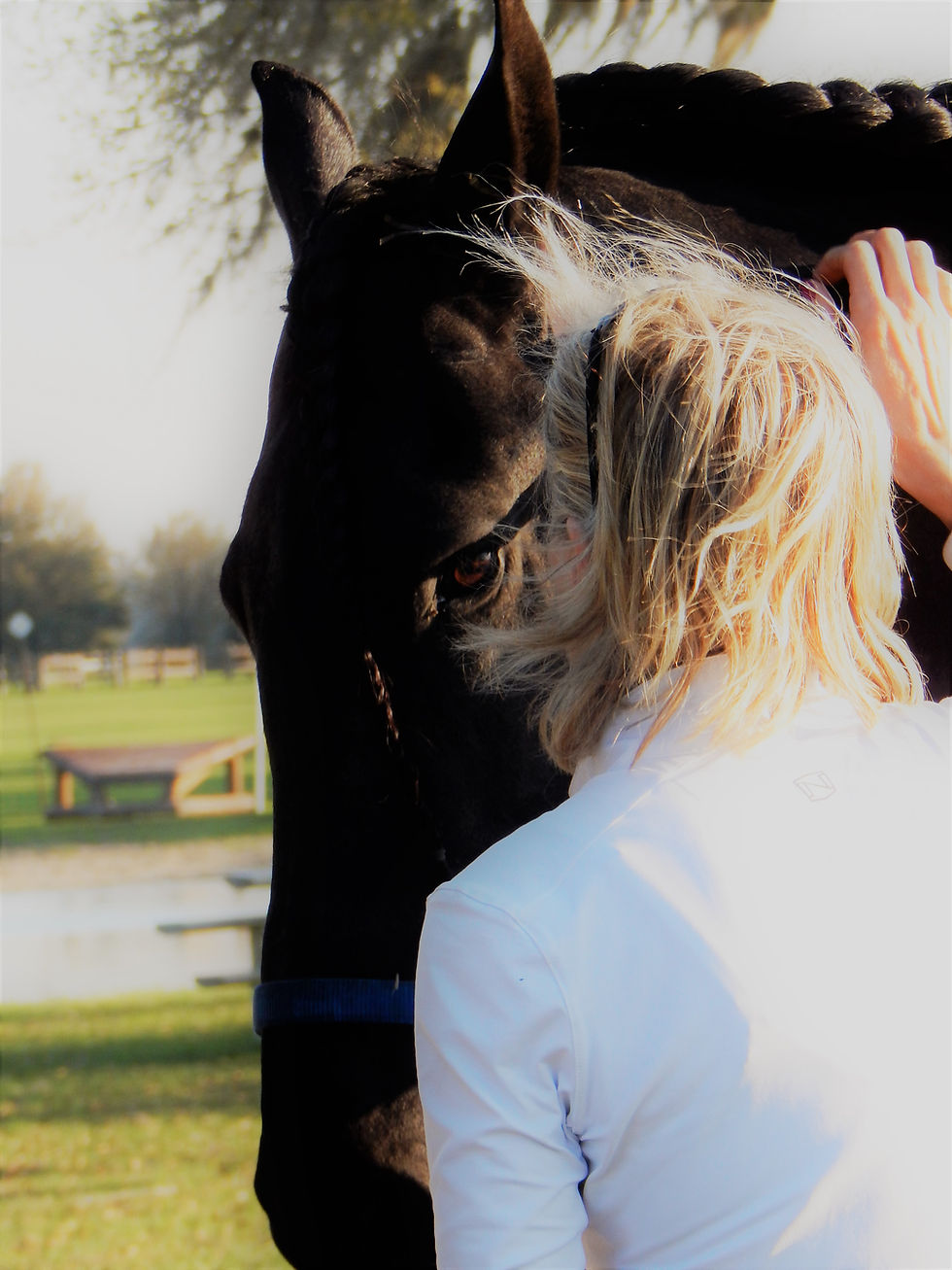Horse Listener
- Brianna Gonzalez
- Apr 23, 2019
- 3 min read
“If you do not listen, I cannot teach.” This is a sentence my mother said many times teaching kids how to ride. Unfocused and rude children would get these words served with a side of very serious face and tone of voice. Somehow these words reached the understanding of every kid they were told too. Something I admire about my mother is that she always found clever ways to get respect from naughty kids. That or the naughty little critters quit riding because they were not ready to listen. Listening was important to my mother because the riding business is a risky one. If people did not listen to her words, then they could get hurt or get the horse hurt.
Safety is a big benefit to listening. Other benefits include a healthy relationship with employers, employees, peers, and loved ones. By shutting our mouths, opening our minds and listening we can better coexist with the world. This includes our horses.
I remember the term “horse whisperer” being a coveted phrase for horsemen and women alike. Somewhere in the early age of natural horsemanship, “horse whisperer” was coined. These horsemen and women seemed to get extraordinary things from the horse with mere whispers. Their study of horse psychology revolutionized the relationship between horse and rider. This horse whisperer movement continues to improve horse lives everywhere. Despite the benefits of horse people everywhere attempting to become horse whisperers, I believe we should continue this movement striving to become horse listeners.
Recently, I started working with my mother's horse, Bodacious aka Bo. He is a lovely dark brown OTTB with big inquisitive eyes and tiny, almost pony like, ears which give him a mischievous expression that always makes me smile. As I started working with him, my mother's words rang loudly in my mind, “If you do not listen, I cannot teach.” Bo seemed to be giving me the naughty kid speech before I had done anything to suggest I was not listening. So, I knew he had said these words before and been ignored. Coming from the racetrack and being a stakes horse who won over 100k in his hay day, Bo was no stranger to hard work. I am sure he expected me to ask everything of him when we took our first ride, but I wanted to be sure he knew I was listening. So, we just walked and talked and watched the sun set. Romantic I know. I learned a lot from listening though. I learned that he was stiff to the right so the right lead would be difficult, and he would need lots of lateral work to help him. I learned that he was defensive of his face and would need me to have soft hands. He told me that he had been out of work for a long time and would need patience. With that, I proceeded with his transition from out-of-work racehorse to light working moms’ horse. We did a week of lateral work at the walk. Then found our way to trotting and even had the loveliest canter...to the left. The right lead is still elusive. Thus, we will work with more shoulder-in and haunches-in and when he is balanced and strong enough, I am sure we will find that right lead.
Bo is not the only horse that feels like humans have ignored him. I have ridden several others and I have been the one to ignore them as well. It's not as obvious as not feeding them or giving them water. It's not even as obvious as bad saddles, sore backs, or poor fitting bits. It's the things we really must listen to, like unfit horses, unbalanced horses, and unconfident horses. We cannot talk over our horses when they are trying to tell us that they do not understand, or they can not physically or mentally accomplish the task we are asking of them. We humans are greedy, self-absorbed, and tend to rush through life. We push our employees and children to unnecessary stress levels, and we do not stop to ask them how they are doing. The same goes for our horses.
Instead of asking ourselves how we could do better we just blame the employees, children and horses. First listen, then ask relevant questions, then keep listening. If we want to be better people, we must be better listeners. If we want to be better horse people, we must be better horse listeners.





Comments